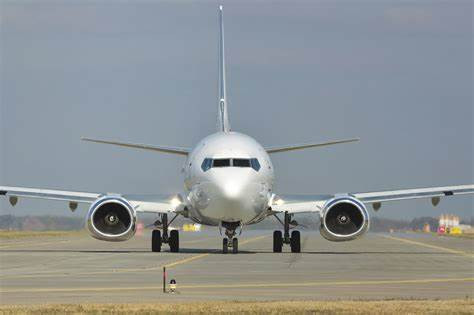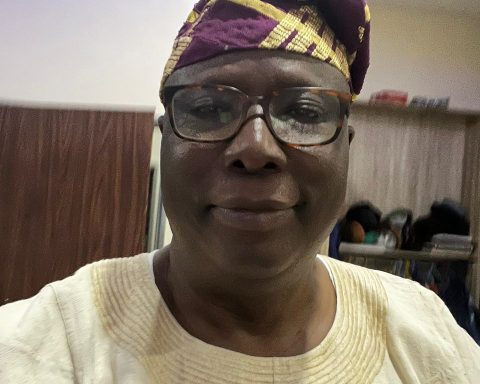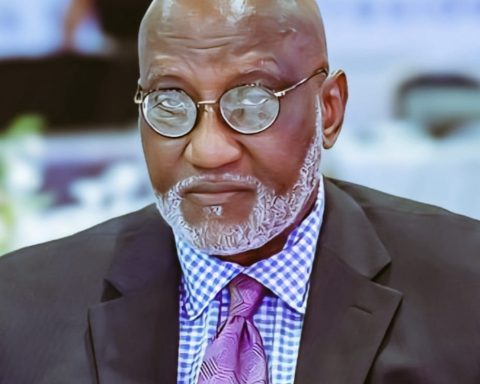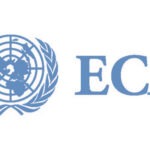The ongoing conflict between Israel and Iran has taken a dramatic turn with the United States’ direct intervention, sparking fears of a broader regional war. Israel’s surprise airstrikes on Iran’s nuclear and military sites have been met with retaliatory missile strikes, while diplomatic efforts to secure a ceasefire have failed.
These strikes killed senior Iranian military leaders and several nuclear scientists. Although Israel stated its goal was to dismantle Iran’s nuclear ambitions, Iran confirmed damage but denied dangerous material leaks. This means Israel might not entirely achieve its first objective, or maybe there was another bigger objective: to dismantle Iran’s leadership.
Join our WhatsApp ChannelThe conflict escalated over the following days, with Iran launching hundreds of missiles and drones at Israel, while Israel intensified strikes on Iranian nuclear, missile, and military infrastructure, including oil refineries and government buildings. Iranian allies like the Houthis also fired ballistic missiles at Israel, broadening the war. Diplomatic talks in Geneva, New York, and Istanbul failed to secure a ceasefire, as Iran refused negotiations with the United States while Israeli attacks continued.
By 20 to 21 June, the war’s ninth day, missile exchanges and airstrikes persisted. Casualty figures have been significant on both sides, with serious economic and social impacts. Iranian sources report over 400 killed and 3,000 injured, including many civilians and health workers, as Israeli airstrikes damaged hospitals and key infrastructure. On the Israeli side, Iranian missile attacks have killed at least 24 civilians and injured dozens, disrupting daily life and straining emergency services. Economically, Iran faces damage to military and industrial sites, while Israel bears costs from missile defence and civil protection. Socially, the conflict has intensified fears and nationalism, with protests supporting regimes and condemning the enemy.
READ ALSO: Middle East On Brink: Israel-Iran Conflict And Global Leadership Failures
Amid rising violence, several countries, including Australia, New Zealand, Switzerland, the United Kingdom, and Bulgaria, have closed or suspended their embassies in Iran and Israel, evacuating thousands of their citizens. This has left many foreign nationals, including Nigerians, stranded and without adequate consular support, highlighting the humanitarian challenges and regional instability caused by the war. The closure of diplomatic missions complicates evacuation efforts and access to assistance, and then further deepening the human toll beyond battlefield casualties.
Is Israel’s Pre-emptive Strikes on Iran Basically About Nuclear Threat?
Israel said its plan was to prevent Iran from becoming a nuclear threat. However, given the long history of hostility—where Iran labels the United States as the “Great Satan” and Israel as the “Little Satan,” and the United States once called Iran part of the “axis of evil”—the conflict might be deeply rooted in ideological and political tensions. It is plausible that Israel’s actions were not only about defence but also aimed at weakening Iran’s regional influence and deterring any potential uprisings against it.
The strikes have targeted several top Iranian military officials, including Saeed Izadi, head of the IRGC’s Palestine Corps coordinating with Hamas, Behnam Shahriyari, responsible for supplying missiles to Hezbollah and other proxies, and earlier in the conflict, Hossein Salami, commander of the Islamic Revolutionary Guard Corps, and Mohammad Bagheri, Iran’s armed forces chief of staff. These targeted killings aim to disrupt Iran’s military command and its support for militant groups attacking Israel.
Others argue that Israel’s decision to strike directly, rather than through proxies, marks a fundamental shift from shadow warfare to overt confrontation, reflecting a strategic effort to cause permanent damage to Iran’s military capabilities and political resolve. Some analysts argue that beyond halting Iran’s nuclear programme, the strikes serve broader political goals, including undermining United States-Iran diplomacy and distracting from Israel’s actions in Gaza.
The United States Joins the War: Implications for the Region
The entry of the United States into the war has dramatically raised the stakes. In response to growing concerns that Israel alone could not eliminate Iran’s deeply buried Fordow nuclear facility, the U.S. has now conducted targeted strikes on Iranian military and nuclear-related infrastructure, reportedly using advanced bunker-buster munitions and stealth bombers.
This direct intervention marks a major turning point in the conflict. Iran, which had previously warned of “grave consequences” if the U.S. joined the war alongside Israel. Iran may now activate a broader network of proxies. Iraqi militias, Syrian-based forces, and the Lebanese Hezbollah can intensify attacks against U.S. bases and interests in the region. American embassies across the Middle East have gone on high alert, while oil prices may stay on the surge due to attacks on maritime shipping and energy facilities near the Strait of Hormuz.
Regionally, the war has further destabilised an already fragile Middle East. Iran has now declared the U.S. a “co-belligerent,” with its supreme leader vowing retaliation “on all fronts.” U.S. military personnel in Iraq, Syria, and the Persian Gulf face heightened threats, while American allies in the Gulf worry about becoming next targets.
Strategically, this war has drawn the United States into yet another complex Middle Eastern quagmire with no clear exit strategy. There are fears that continued U.S. strikes may trigger a larger war involving more countries, including Russia or China, through proxy alignments or political alliances. Even American domestic opinion is beginning to divide sharply, with protests and political pushback over the risk of a wider war.
Thus, while the U.S. intervention may offer short-term tactical advantages to Israel, it risks turning a regional conflict into a global crisis. It also validates Iran’s long-standing narrative that the West seeks its destruction, fueling more resistance and consolidating authoritarian rule within the country.
Israel Overpowering Iran, Yet No Hope of Achieving Objectives
Since the conflict began, Israel’s airstrikes have severely reduced Iran’s missile and drone firing capacity by targeting key missile production sites like the Khojir Complex near Tehran, along with storage and launch facilities. Reports showed that these strikes have destroyed about 40 missile infrastructure components, forcing Iran to cut missile launches by over 60 per cent. Despite Iran deploying advanced hypersonic missiles and drones designed to evade interception, damage to launchers and supply chains has limited its ability to sustain large-scale attacks.
Simultaneously, Israel has established near-total control of Iranian airspace through continuous airstrikes, electronic warfare, and suppression of air defences. The Israeli Air Force’s SEAD missions have neutralised roughly 40 per cent of Iran’s surface-to-air missile systems, enabling Israel to strike deep inside Iran with reduced risk. Although some Iranian hypersonic missiles have occasionally penetrated Israeli defences, this shows ongoing challenges in missile interception.
Meanwhile, Iran’s leadership remains intact and its regime, though under pressure, has not crumbled. Nationalist sentiment and state propaganda have helped the leadership retain control, despite internal discontent. Protests have not escalated into full-scale rebellion, and Iran still maintains some offensive capacity.
In the Midst of All the Speculations and Doubt, the United Nations Failed Woefully.
The United Nations has repeatedly failed to prevent wars and protect global peace since its founding in 1945. Despite its mandate to maintain peace, the UN’s effectiveness is severely limited by the veto power held by five permanent Security Council members, which often blocks decisive action when major powers’ interests clash. This has resulted in the UN being unable to stop numerous conflicts, including the Israeli-Palestinian war, the Kashmir dispute, the genocides in Rwanda and Cambodia, and ongoing wars in Syria, Yemen, and Ukraine.
The UN’s peacekeeping missions have sometimes succeeded but often failed due to restrictive mandates, lack of enforcement power, and insufficient training, as seen in Rwanda and Bosnia. Additionally, the UN relies on the consent of host governments, limiting swift intervention. In many cases, the UN has been reduced to a forum for political debate rather than effective conflict resolution, with resolutions often ignored or unenforced.
Again, the UN’s structural weaknesses, especially the Security Council veto system, and geopolitical rivalries among powerful nations have led to a pattern of inaction and impotence, allowing wars and human rights abuses to continue unchecked worldwide.
The United States and the broader Western world have often been criticised as key orchestrators of global conflicts through a combination of imperialism, military build-up, and resource-driven interventions. Historically, Western powers have pursued imperial ambitions by exerting political and economic control over other regions, often justifying military interventions as promoting democracy or security. This legacy includes colonialism, Cold War proxy wars, and more recent conflicts in the Middle East, Africa, and elsewhere.
The massive military-industrial complex in the United States and allied Western countries fuels continuous arms production and global arms sales, which exacerbate conflicts by supplying weapons to various state and non-state actors. Furthermore, Western powers have frequently intervened militarily or covertly in resource-rich countries to secure access to oil, minerals, and strategic territories, often destabilising governments and societies in the process.
Therefore, the Western world and the United Nations must prioritise genuine dialogue and equitable diplomacy over power-driven agendas. They should commit to respecting national sovereignty and avoid interventions motivated by resource or geopolitical interests. The UN needs to reform its Security Council to limit veto misuse, enabling timely, unified responses to crises.
Both should invest more in preventive diplomacy, conflict resolution, and supporting grassroots peace initiatives rather than relying heavily on military solutions. Transparency, accountability, and inclusive engagement with all stakeholders, including marginalised groups, are essential to build lasting peace and trust globally. If not, the war might destroy the world leaders, too.
Dr Mbamalu, a Jefferson Journalism Fellow (Hawaii, USA), member of the Nigerian Guild of Editors and Media Consultant, is the publisher of Prime. Business Africa
Dr. Marcel Mbamalu is a distinguished communication scholar, journalist, and entrepreneur with three decades of experience in the media industry. He holds a Ph.D. in Mass Communication from the University of Nigeria, Nsukka, and serves as the publisher of Prime Business Africa, a renowned multimedia news platform catering to Nigeria and Africa's socio-economic needs.
Dr. Mbamalu's journalism career spans over two decades, during which he honed his skills at The Guardian Newspaper, rising to the position of senior editor. Notably, between 2018 and 2023, he collaborated with the World Health Organization (WHO) in Northeast Nigeria, training senior journalists on conflict reporting and health journalism.
Dr. Mbamalu's expertise has earned him international recognition. He was the sole African representative at the 2023 Jefferson Fellowship program, participating in a study tour of the United States and Asia (Japan and Hong Kong) on inclusion, income gaps, and migration issues.
In 2020, he was part of a global media team that covered the United States presidential election.
Dr. Mbamalu has attended prestigious media trainings, including the Bloomberg Financial Journalism Training and the Reuters/AfDB Training on "Effective Coverage of Infrastructural Development in Africa."
As a columnist for The Punch Newspaper, with insightful articles published in other prominent Nigerian dailies, including ThisDay, Leadership, The Sun, and The Guardian, Dr. Mbamalu regularly provides in-depth analysis on socio-political and economic issues.











